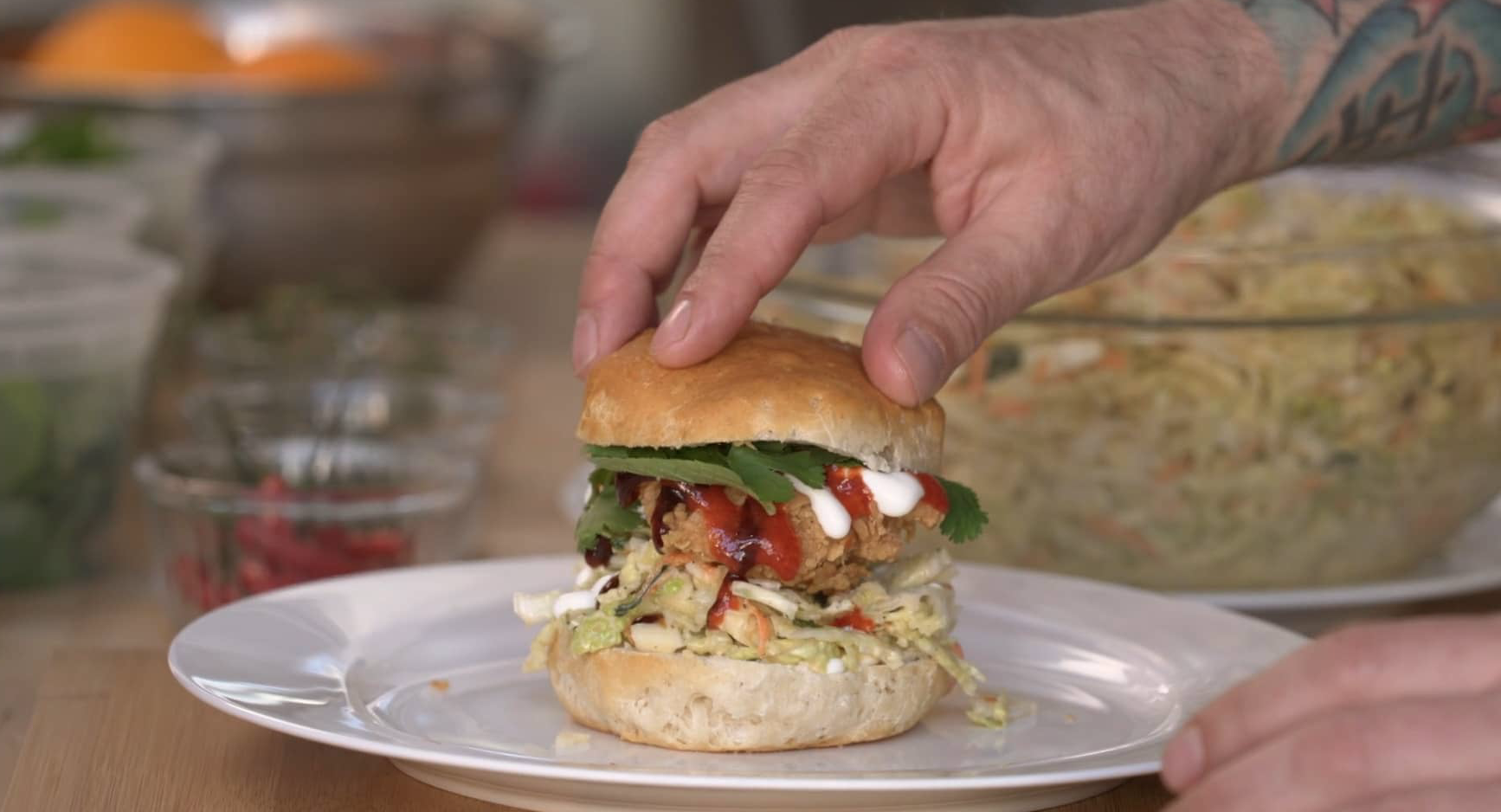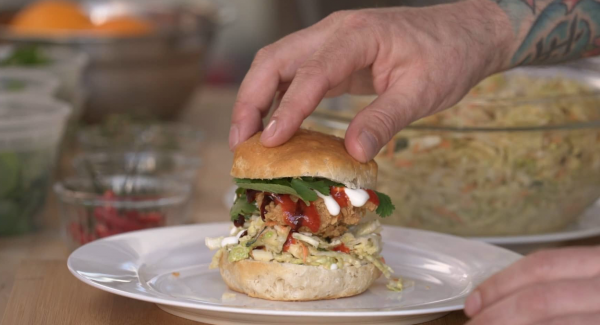KID REPORTERS’ NOTEBOOK
Meat the Future


Would you eat meat that was harvested from animal cells?
When you eat a burger, you probably don’t think about all of the resources that went into creating it. But 1,800 gallons of water are necessary for every pound of meat that we consume. Land and fertilizer are also needed for grazing animals.
Eating meat has other costs. According to the United Nations’ Food and Agriculture Organization (FAO), the livestock industry is responsible for roughly 14.5% of global greenhouse gas emissions.
Today, scientists and others are working to create tasty options for consumers in order to cut down on meat consumption. These include plant-based burgers and even burgers that are grown from animal cells.
A new documentary, Meat the Future, explores the cell-based beef and poultry being developed at Memphis Meats, a food tech company in California.
“I was drawn to the topic as a massive solution to some of the world’s biggest problems that I happen to care a lot about, like animals, the Earth, and human health,” says Liz Marshall, who wrote, produced, and directed Meat the Future.
“REVOLUTIONARY PROMISE”
The company that Marshall spotlights sounds like something out of a sci-fi novel. Co-founded by Uma Valeti, who was trained as a cardiologist, Memphis Meats takes cells from animals and grows them in a lab, with the hope of making delicious burgers, chicken, and even fish. Cell-based meat also drastically reduces the risk of infections since the animal cells grow isolated in a sterile environment.
If successful, this technology and others like it could change our eating habits and the way we think about food. “What the future holds for cell-based meat is unclear,” Marshall says. “But I believe its revolutionary promise and historic journey into the world will stand the test of time.”
Meat The Future will be available to stream on CBC Gemon on October 23. You can also watch it on the CBC Documentary Channel worldwide.
